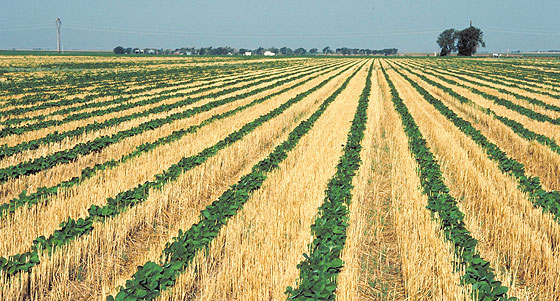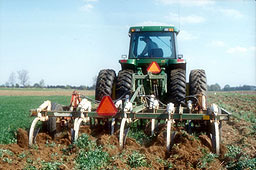
- No-till soybeans in Hale County, Texas
- Gene Alexander/USDA
To Plow – More with Less
Traditional plowing leads to soil loss. Plowing disturbs bacteria, fungi, and animals that make soils naturally fertile, and it releases the carbon stored in soil organic matter to the atmosphere as carbon dioxide, a greenhouse gas. It also raises the risk of erosion, which moves fertile farm soil into bodies of water. But now, there are ways to plant seeds and discourage weeds without plowing.
Erosion threatens agriculture. Fields become infertile when soil and nutrients erode. In the 1930s, many Southeastern and Midwestern farms failed due to erosion and nutrient loss. Soil-saving practices like contour terracing, cover crops, and forested windbreaks can protect soils and conserve nutrients—but soil losses continue to affect agriculture and the environment.
Conservation-oriented farming sustains soils. Ground covers sown after crop harvest protect land that would be bare in the off-season. Low-till farming and no-till farming (planting directly into the previous crop’s residue) let soils accumulate organic matter, support diverse living communities, and hold water. The results are healthy soils, profitable to farm.

- Plowing under a clover cover crop
- Courtesy KBS LTER
